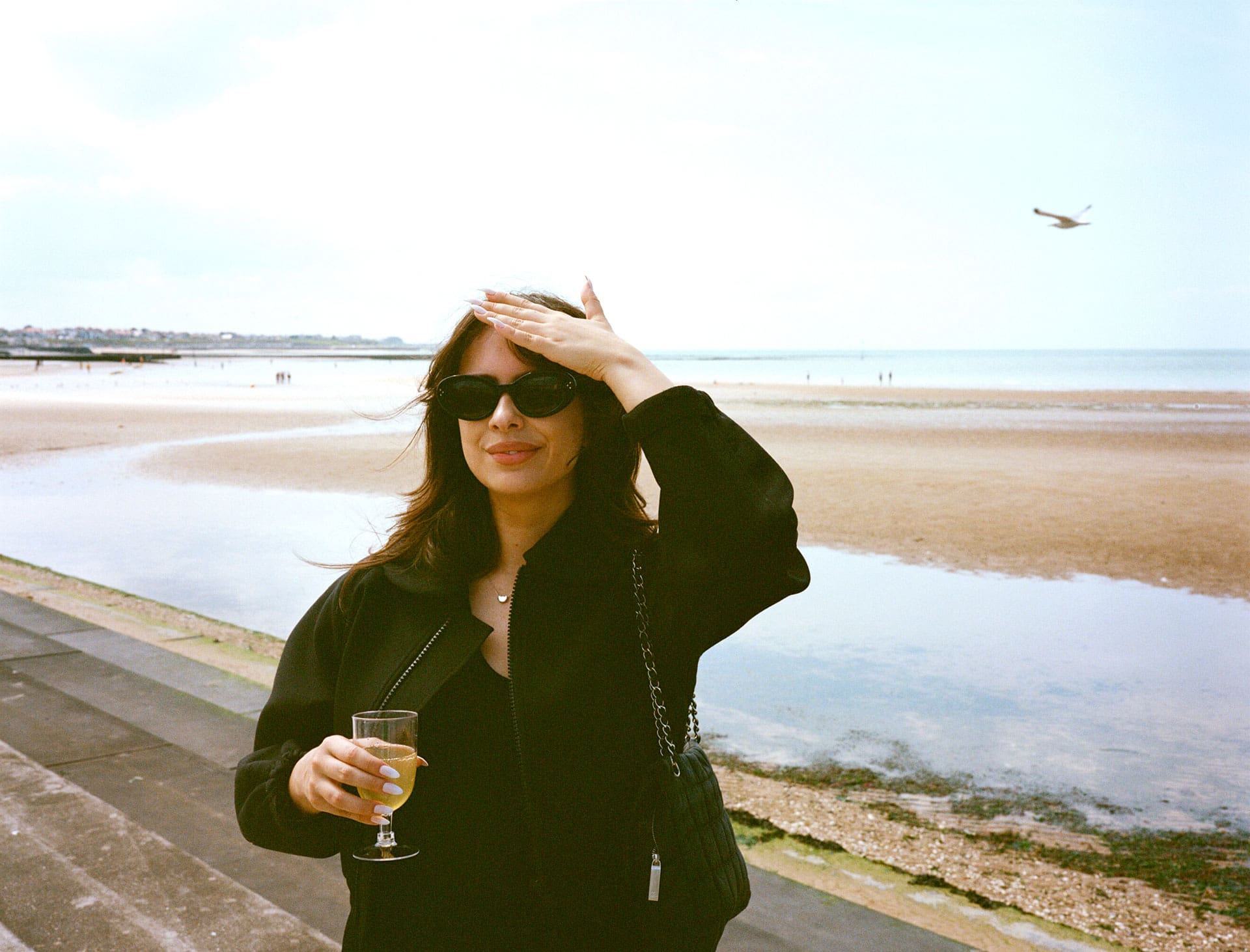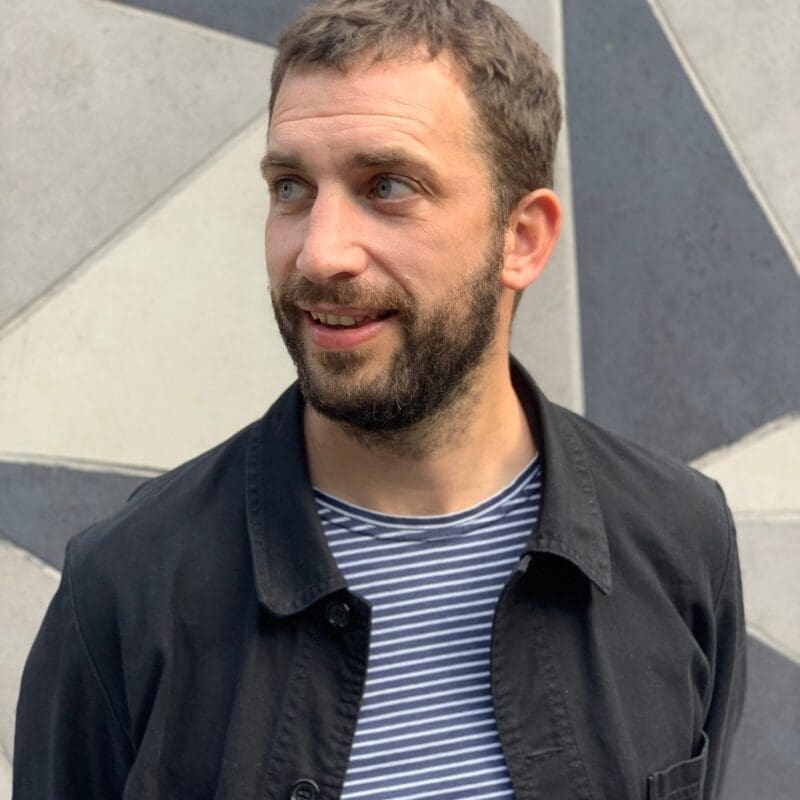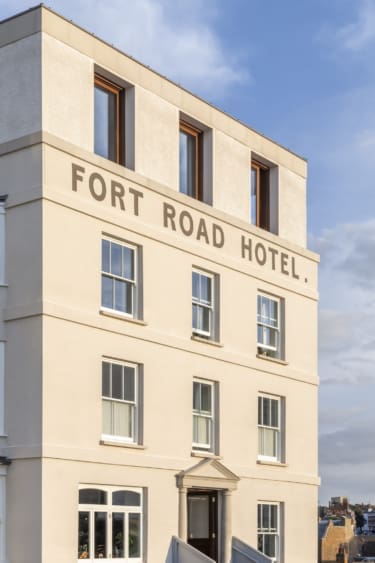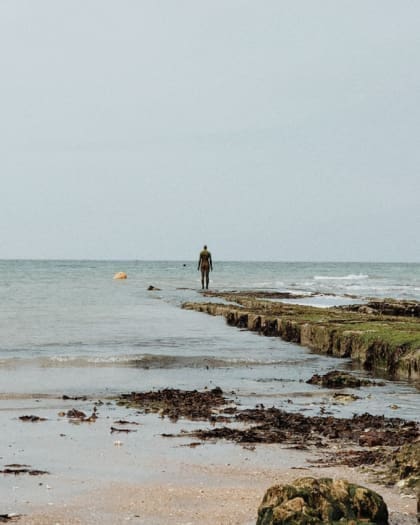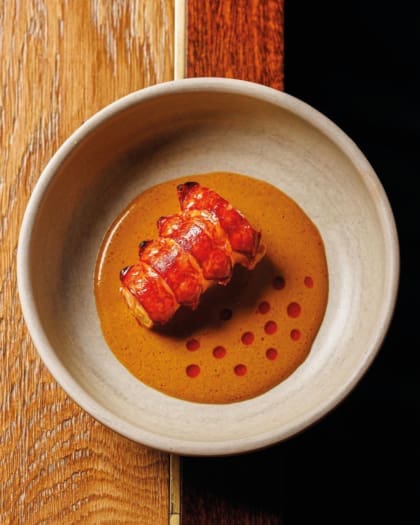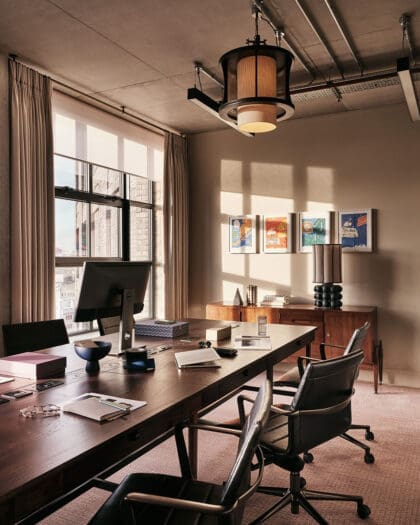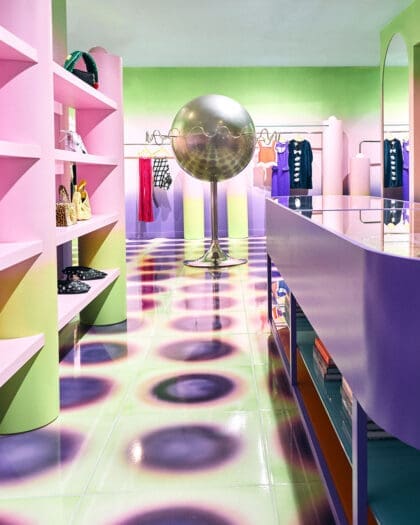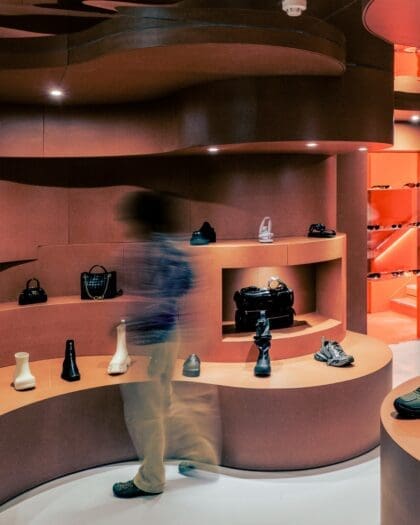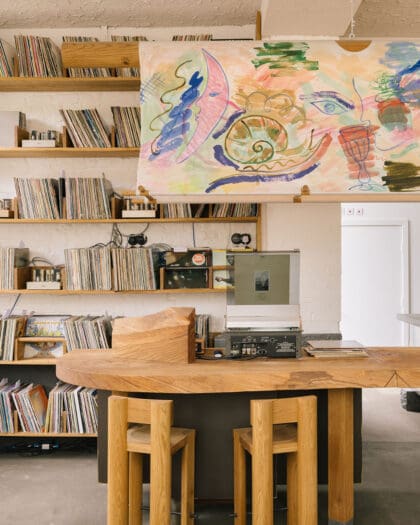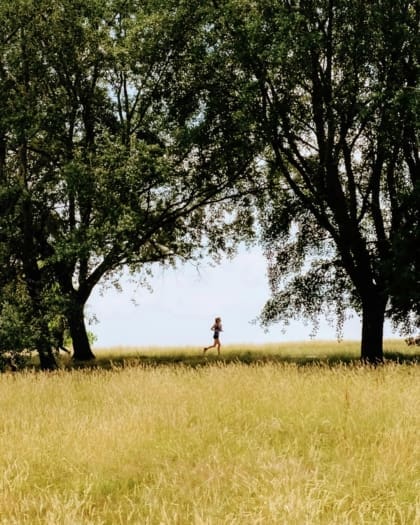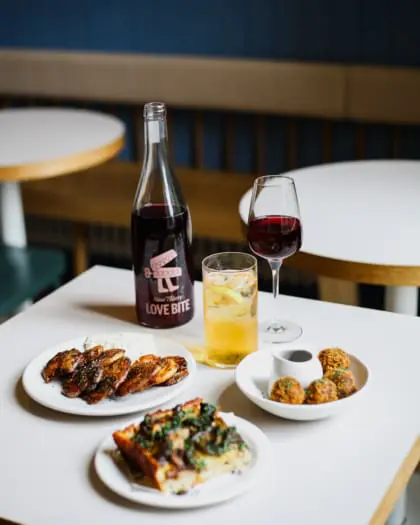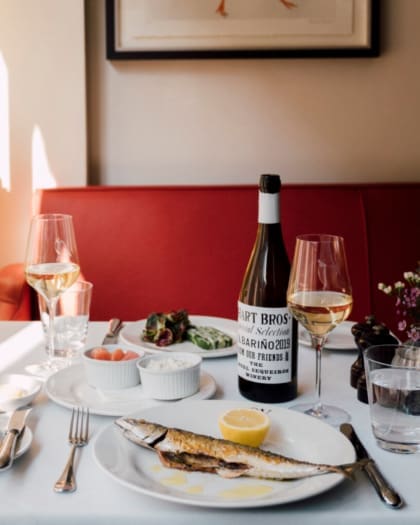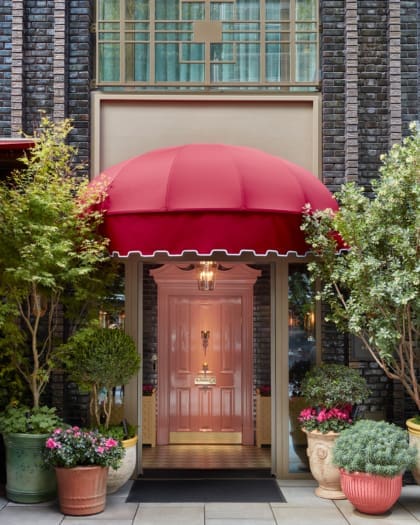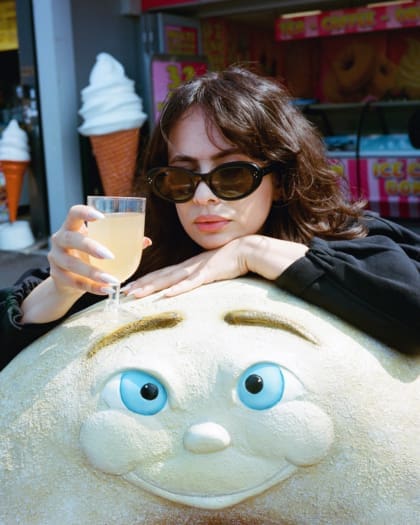
Wine expert Hannah Crosbie on challenging conventions, class barriers and palates
From London newcomer to leading tastemaker, the author, broadcaster and wine-club founder shares her wisdom from the front line of the wine industry
It’s been a busy few months for Hannah Crosbie, the Scottish-born, London-based wine writer, columnist and broadcaster who’s spent the first half of summer toasting the launch of her debut book, Corker. Although billed as a “deeply unserious wine book”, this gothic typeface-fronted tome gives an alternative take on an often dusty topic, offering wine selection advice hooked around real-life situations – from barbecues and boozy brunches to first dates or finalising a divorce – all brought to life by Crosbie’s charismatic prose.
Having first found her feet in the restaurant industry after arriving in the capital, she honed her knowledge as a wine copywriter before lockdown saw her find another vehicle for her “obsession” in the form of Dalston Wine Club, a semi-regular series of events aimed at London’s new wave of wine lovers. Along the way, she’s carved out a niche as one of London’s most relatable wine experts.
Beyond a series of launch events across the UK (“I also went to Ireland so I’m calling it a world tour”) Crosbie wraps up this summer with a handful of literary festival appearances. Photographed here by the sea in Margate, Crosbie charts her career to date, while explaining why our changing collective attitudes towards wine are long overdue.
Plus, for more London drinking inspiration, visit our list of the capital’s best bars.
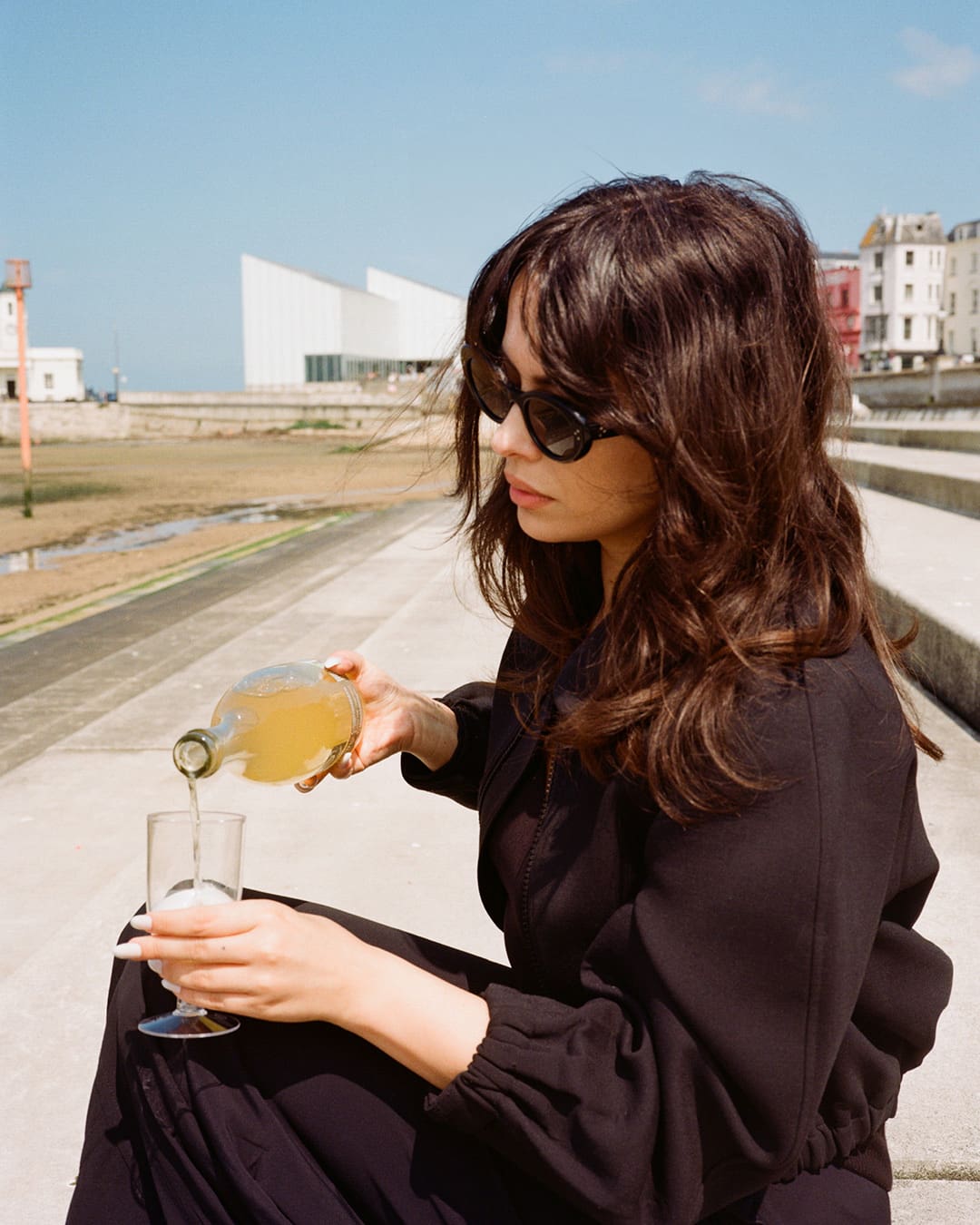
How did your early years influence your career?
I grew up in Edinburgh with a very normal lower-middle-income background. My parents didn’t drink and I didn’t have many friends growing up so I didn’t go to many parties. Instead, I got my introduction to wine in the same way as many people from a similar background to me do, which was by working in hospitality.
I worked in restaurants to be able to afford to first move to London and then, when I got here, that continued with a job in a bistro. It was there that I first started to learn about wine. Later, I got my wine qualifications and became a copywriter for London-based retailers and merchants.
What first encouraged you to pursue work in the wine industry?
When I was younger, it seemed to me that wine was something that only posh people drank, or you drank but never really understood. For me, my obsession grew after starting to write about wine, which – as a subject – combines all of my favourite things: gastronomy, anthropology, history and geology. I feel that wine attracts a really inquisitive person.
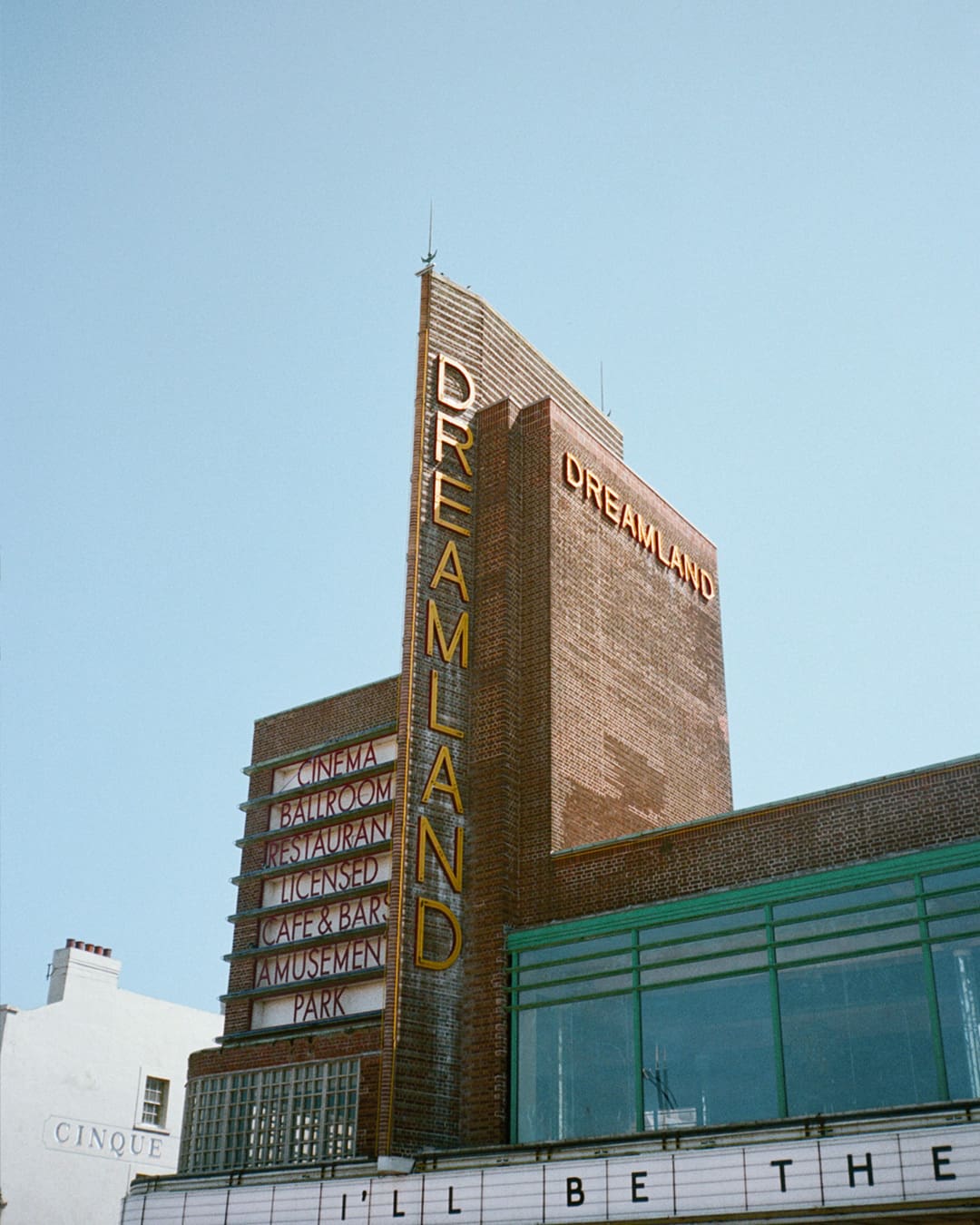
How did the Dalston Wine Club come about?
This was born out of lockdown – a period when our drinking habits had been brought into sharp focus. I realised a new generation of wine drinkers had emerged from this period with a little bit of wine knowledge and some curiosity to learn more. I was messaged a lot by people saying they wanted to go to a tasting that was “young-people friendly” and not too intimidating – so I thought that could be something I could offer.
It started off in a small east London bar called Binch, which was fabulous – there was only room for 12 people for the first one – and it grew from there. I’ve now got this platform of exciting, engaged drinkers and I’m looking forward to doing more stuff on that.
What triggered the concept for Corker, which is pairs wine with everyday scenarios?
Wine is one of the only drinks that you share, unlike a pint or a cocktail. You pour for each other, it’s an act of service and there’s a real romance to that. Wine is unique, too, from one year to the next or from one producer to the next. It matches to unique moments so wonderfully and, by linking it to more mundane moments, I hoped to take away some of the mystique and intimidation from the world of wine.
I often meet people across the country who tell me they drink wine frequently each week but don’t actually know anything about it. They felt that because their own wine tasting experiences aren’t taking place in a dusty cellar, they didn’t count as learning opportunities. With Corker, I wanted to bridge the gap between the domestic space and the wine industry. Rather than go, “Here’s a pinot grigio for summer”, I wanted to illustrate 60 everyday occasions, arming readers with a bit of knowledge as to why a particular wine might work in each situation.
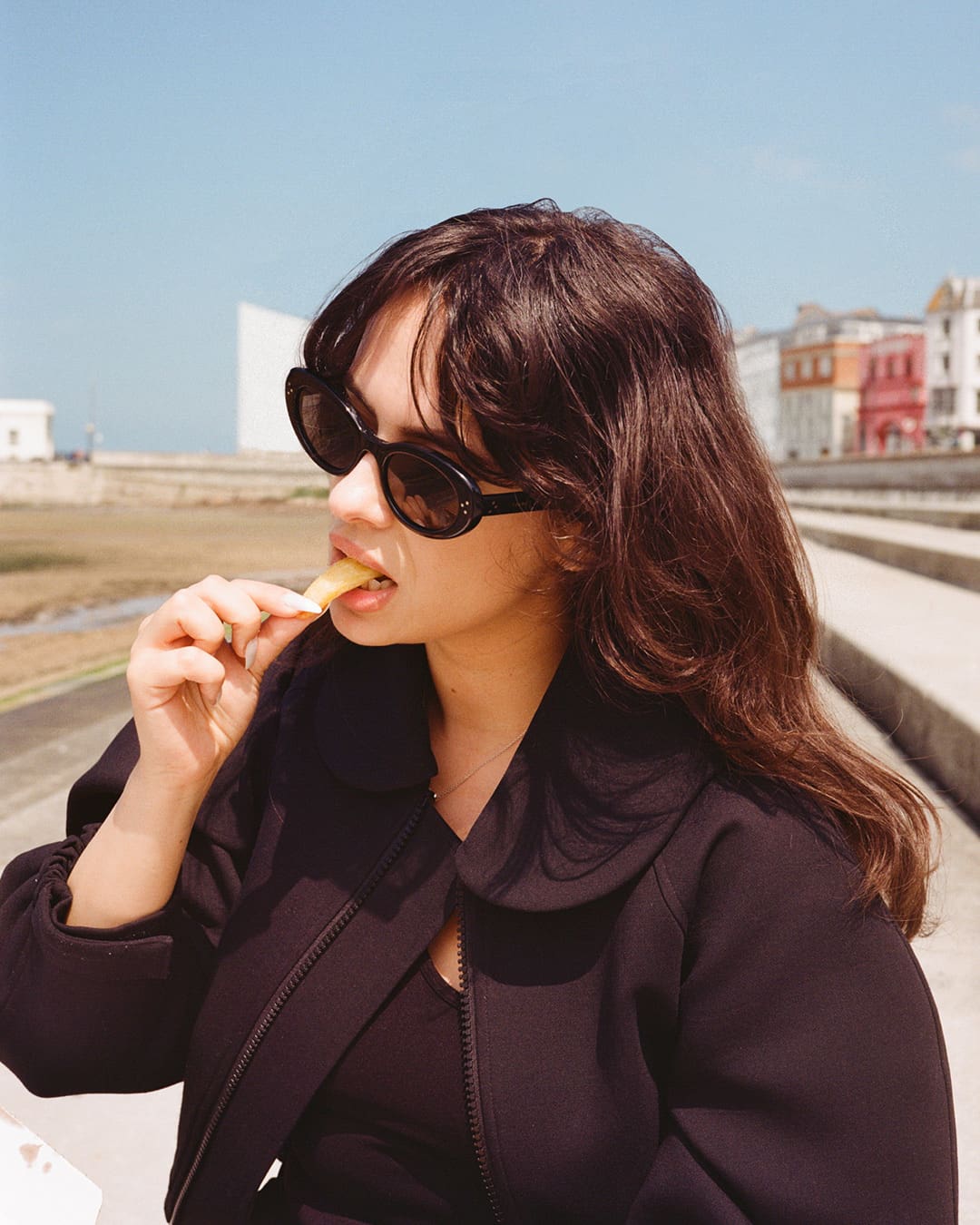
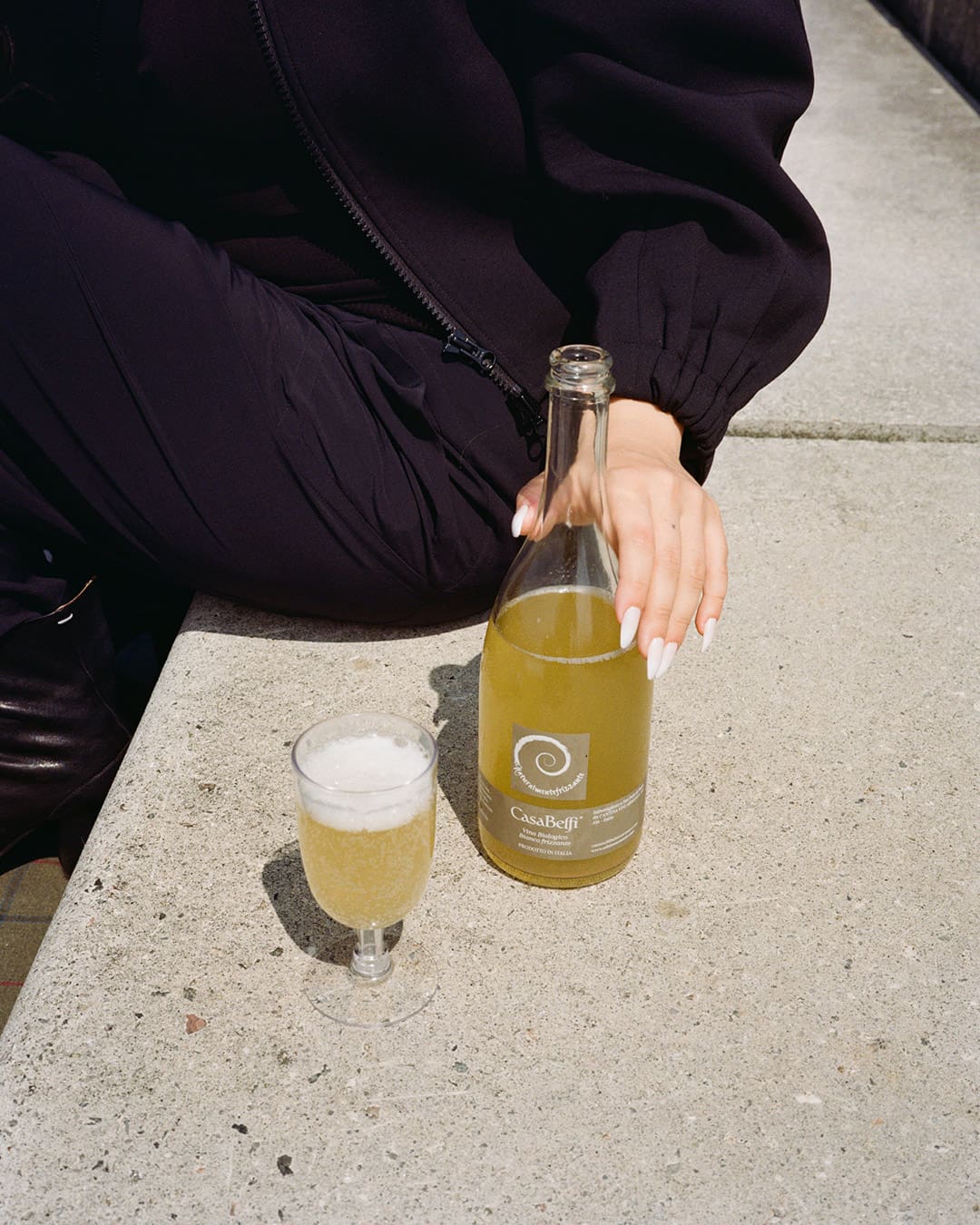
How are London’s tastes changing?
In the London bubble, people are now more keen to experiment. There are all these traditional wine rules and established ways to drink wine, all of which we’re now challenging. I’m not going to be chastised for drinking a rosé in winter or pairing sparkling wine with food, so why are we still afraid about doing it? There’s a real shift towards people drinking what they want, when they want – whether that’s trying new varieties or different winemaking countries.
You refer to a sense of culinary nihilism among younger generations. What do you mean by that?
I interviewed a sommelier who said that a lot of younger people are spending more money per bottle because they feel their future is so uncertain. There’s that saying that young people live in the moment as it’s the only place they can afford to live. If people think they’ll never own a house, then why not spend the little money they do have on things that bring them pleasure, like a really nice bottle of wine.
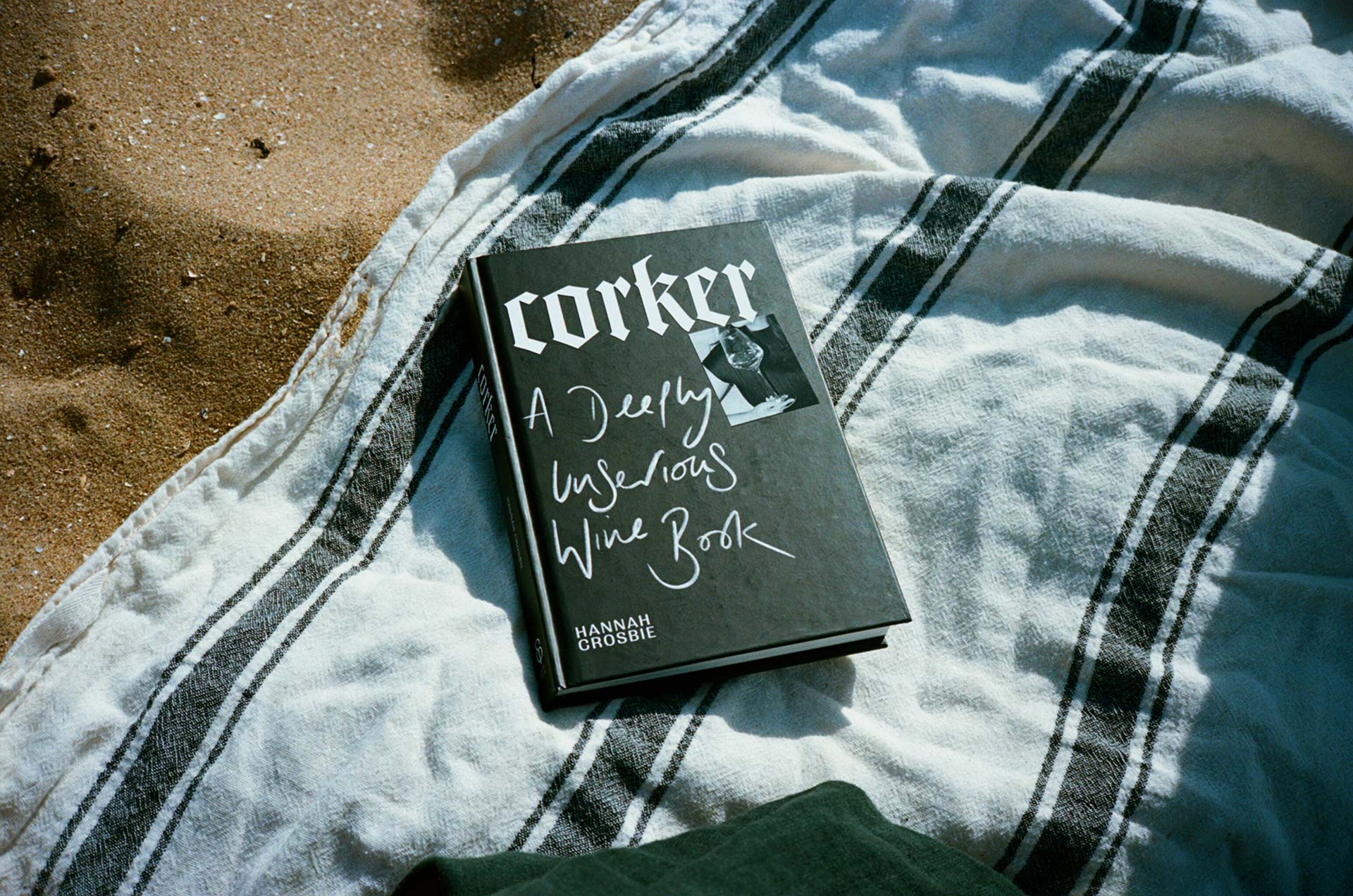
How much can wine expertise be taught?
There are incredible people out there who don’t have a single wine qualification but who are really knowledgeable tastemakers with years of accumulated knowledge. I’d say that WSET (Wine and Spirit Education Trust) provides a great base of knowledge, but to get your awards you have to talk about wine in a very particular way, which tends to homogenise a lot of wine communication. For example, it might dictate that if a wine is cloudy that it’s faulty but, for some winemakers, in particular natural producers, cloudiness is a chosen stylistic factor.
Perhaps this is a female thing, but I personally felt that I had to get the awards as I didn’t want people to question my integrity and knowledge. Having those pieces of paper proves that you have at least a certain level of expertise.
Does the wine industry have a gender issue?
In my experience, there are lots of women in the wine industry, which is great to see, but I’d love to see more women in senior roles. There’s still a long way to go. There have been great articles written about whether wine is about to have its Me Too moment. Wine, like a lot of industries, lends itself well to people being unprofessional. If people want to act in a harmful way, they’d be able to thrive in doing so; there are so many blurred lines between professionalism as people are tipsy quite a lot of the time.
But gender isn’t something I’ve consciously thought about in respect to my own career – instead I’ve always thought about my work as about trying to break out of this upper middle class-centric industry and talk to people from different backgrounds. That’s probably where I’ve had the most pushback in my career – because of my background I do invariably talk about wine in a different way and have different passions and priorities.
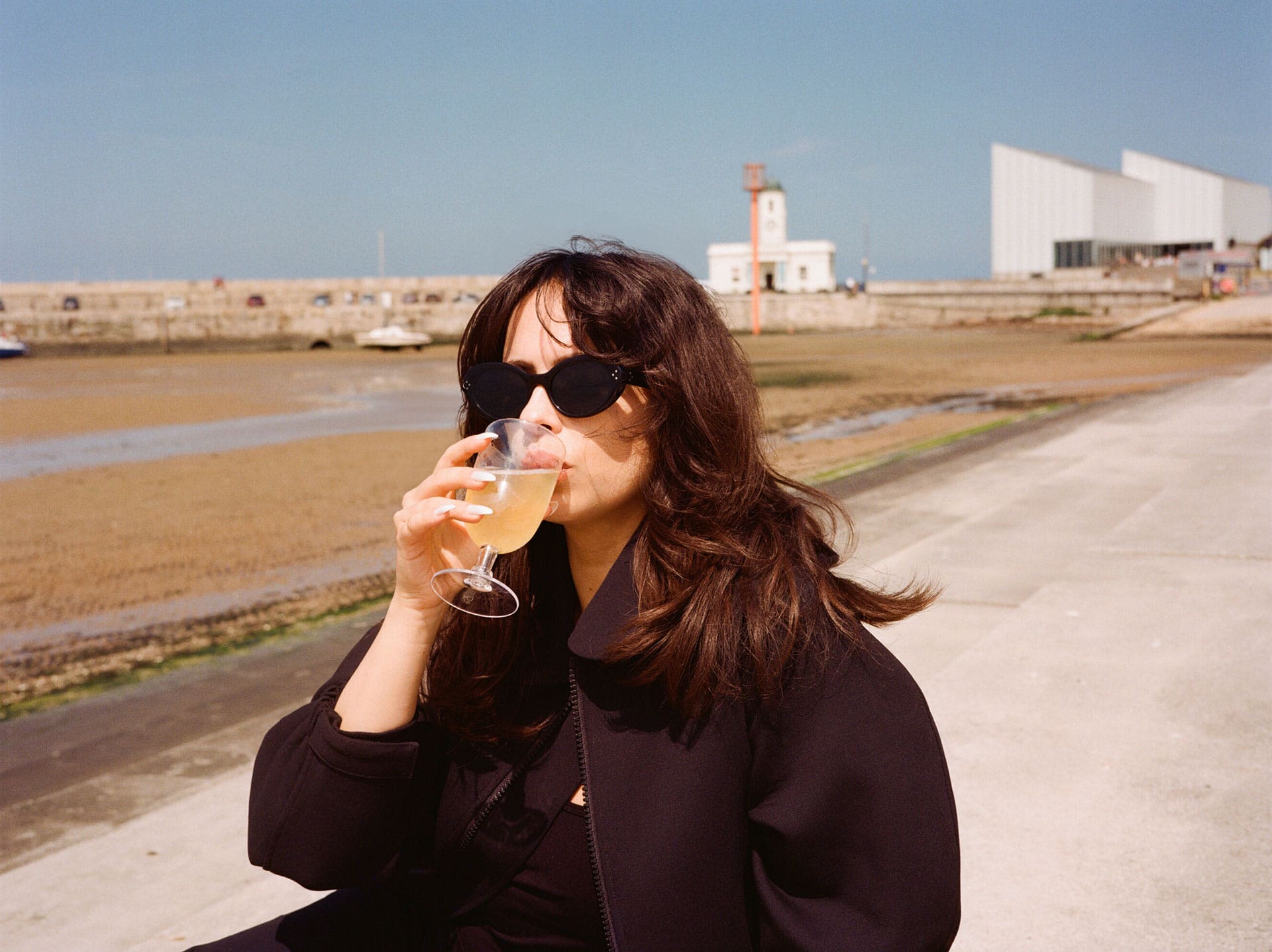
Is the language around wine evolving?
Language is something that should invite people in rather than push them out. A lot of wine writing assumes a certain level of education or social-economic status to understand it, which can make people feel shut out. This is often linked to the way we understand tasting notes. What happens if the notes describe a taste of quince jelly but you’ve never tried that in your life?
But there are some great examples of individual bottle shops and businesses who use youth-friendly, dynamic, exuberant language, which is great. I am super excited about this new generation of wine communicators, buyers and tastemakers as they’re trying to open up the world of wine as much as possible.
Does your passion shape your travel plans?
Some people in the industry might go on holiday and visit five producers while away, but because I travel so much for work, when I’m on holiday I just want a nice cold beer or a Campari soda. I tend to pick places for their food scene – I particularly love Marseille and New York.
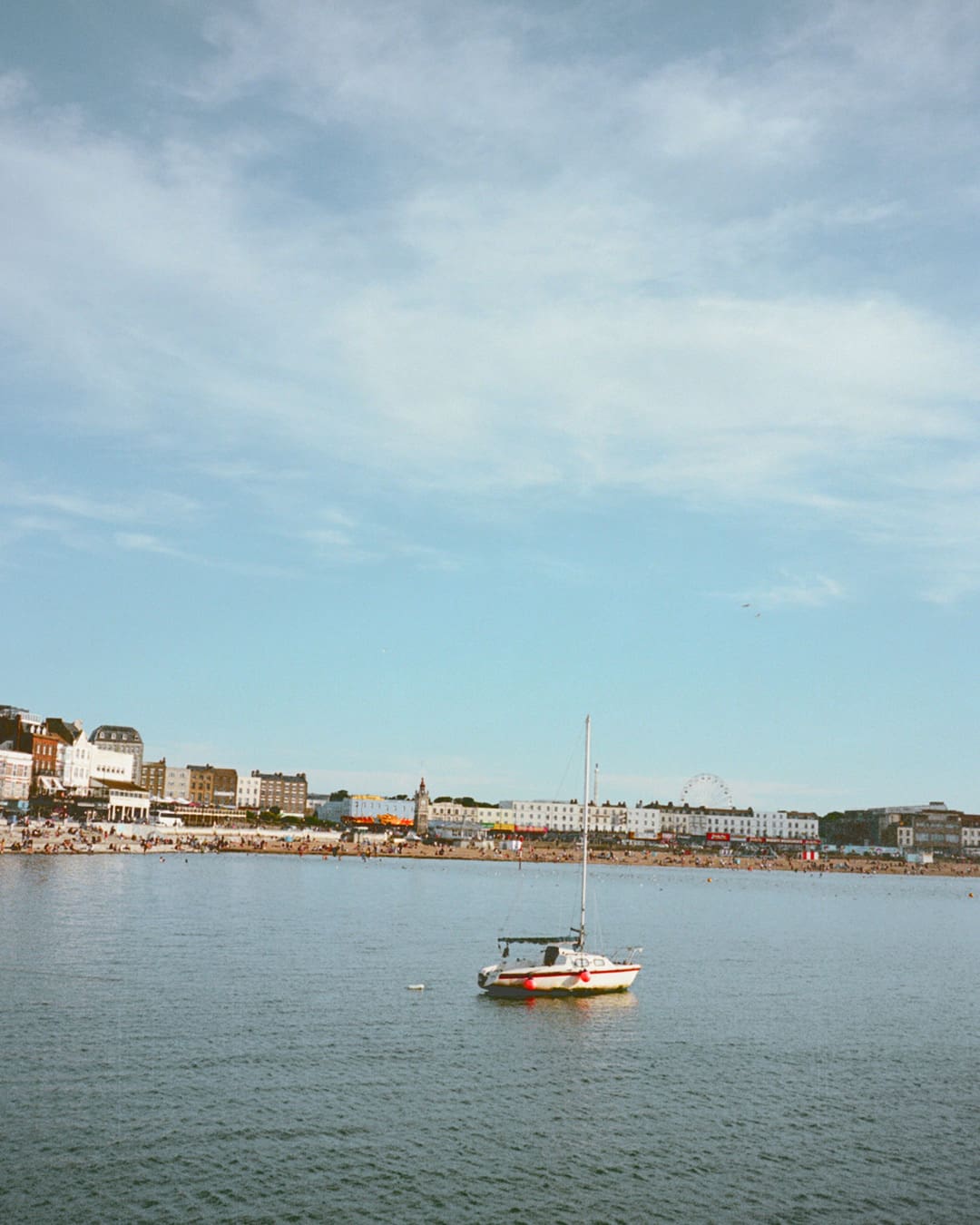

What did writing a book teach you about yourself?
In some ways approaching a book was easier, in others it was much harder. The book is made up of about 60 mini essays, so it was nice to break it down in that way. But then, of course, you’re also writing 60 first lines and 60 middles and ends.
I knew I wanted to be a writer from day dot as it was something I’ve always been good at. But growing up, I didn’t have high expectations of where my life would end up or what kind of career I was going to have. Releasing a book has taught me that I’m capable of achieving more. It’s given me more self belief and it was lovely to be able to prove to myself that I could do it.
